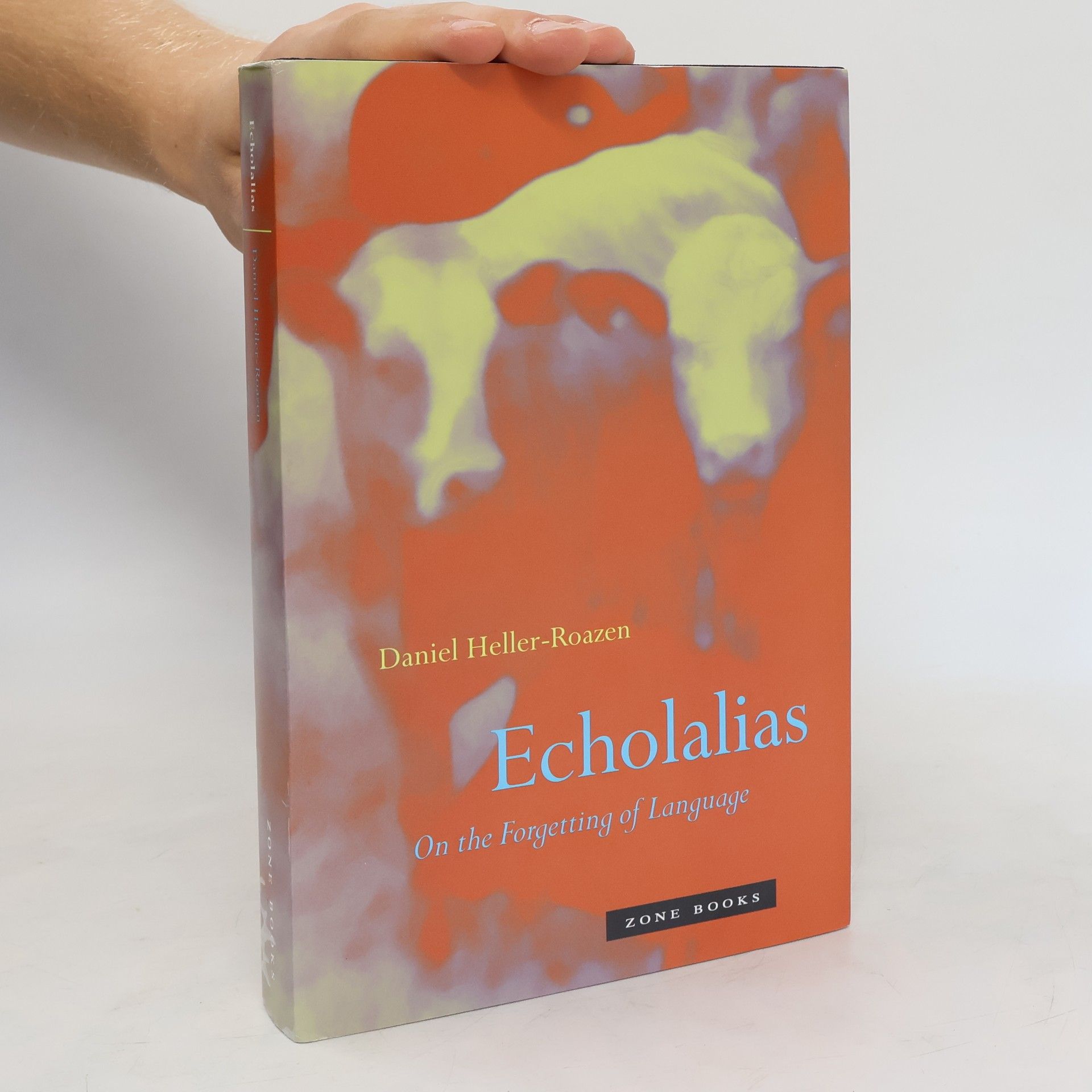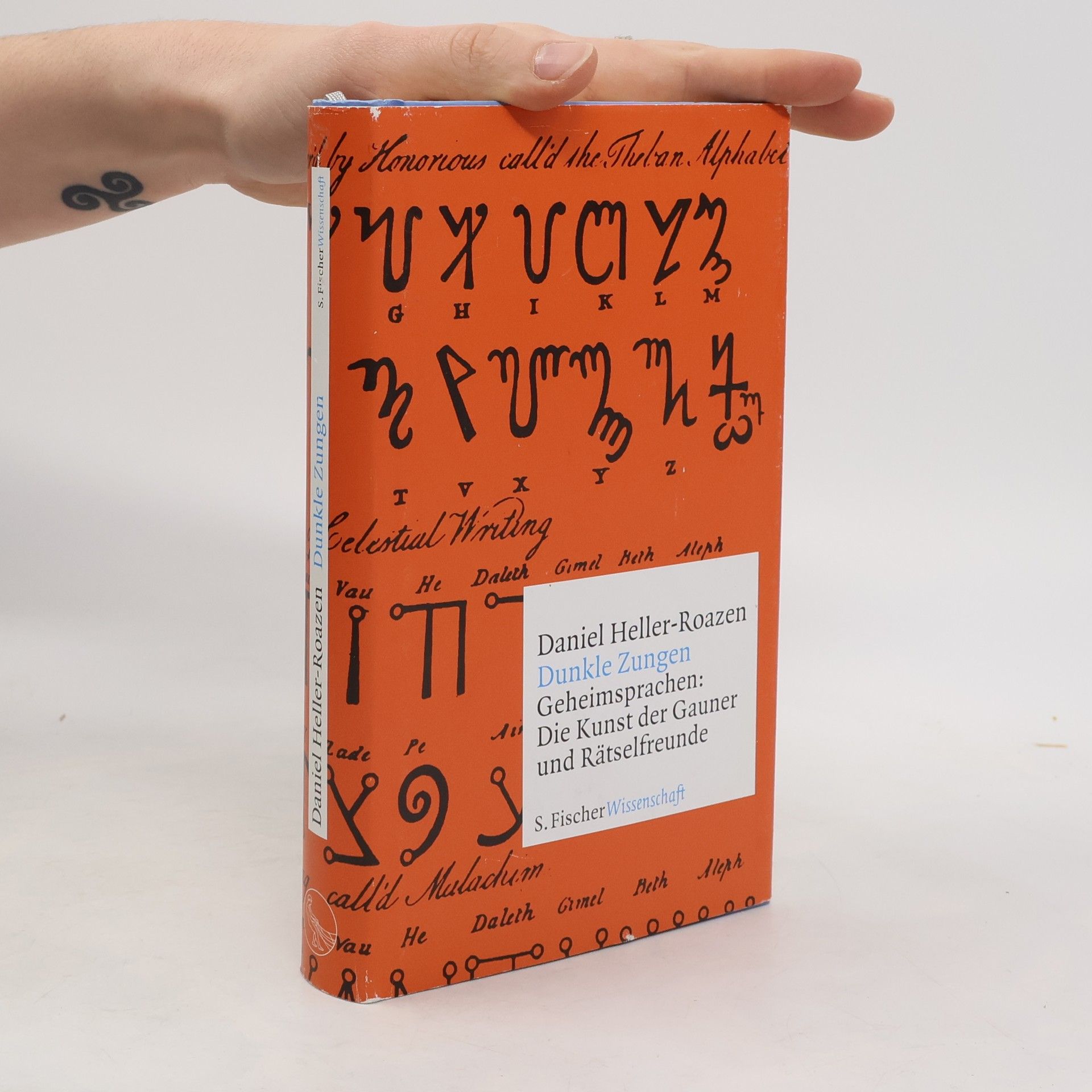Sprache dient der Verständigung. Doch immer wieder hat es Menschen gegeben, die nicht wollten, dass alle sie verstehen. Deshalb haben sie Geheimsprachen entwickelt. Daniel Heller-Roazen unternimmt in seinem Buch einen Streifzug durch die Geschichte der künstlichen und geheimen Sprachen. Von den Sprachen der Gauner, den heiligen Sprachen bis zur Beschäftigung des großen Sprachforschers Ferdinand de Saussure mit Anagrammen, von der arkanen Sprachkunst der Druiden und Bibelkopisten bis zu Tristan Tzara, der die Dada-Bewegung mit begründete und zuletzt die Lieder von Villon zu entschlüsseln meinte, erkundet Heller-Roazen die Sprachkunst von Gaunern und von Rätselfreunden und zeigt: Diese Sprachen, die Klang und Sinn gegeneinander ausspielen, verbindet mehr mit der Poesie, als bislang angenommen.
Heller-Roazen Daniel Bücher
Daniel Heller-Roazen beschäftigt sich mit Fragen der Sprache, der Sinneswahrnehmung und des Rechts über verschiedene literarische Traditionen hinweg. Seine Arbeit untersucht, wie unser Weltverständnis durch Vergessen geformt wird und wie sich das Wesen menschlicher Erfahrung aus der Auseinandersetzung mit dem Immateriellen ergibt. Sein authentischer Stil zeichnet sich durch scharfsinnige Analysen aus, die Philosophie, Literaturgeschichte und kritische Theorie miteinander verknüpfen und den Lesern neue Perspektiven auf grundlegende Konzepte eröffnen. Heller-Roazens Schriften decken tiefe Verbindungen zwischen scheinbar disparaten Bereichen des Denkens und der Kultur auf.





The Inner Touch
- 386 Seiten
- 14 Lesestunden
An original, elegant, and far-reaching philosophical inquiry into the sense of being sentient--what it means to feel that one is alive--that draws on philosophical, literary, psychological, and medical accounts from ancient, medieval, and modern cultures
Absentees - On Variously Missing Persons
- 320 Seiten
- 12 Lesestunden
"From missing persons to disenfranchised civil subjects, from individuals tainted with infamy to the dead, Absentees explores the varieties of "nonpersons," human beings all too human, drawing examples, terms and concepts from the archives of European and American literature, legal studies, and the social sciences"--
Echolalias
On the Forgetting of Language
"In Echolalias, Daniel Heller-Roazen reflects on the many forms of linguistic forgetfulness. In twenty-one concise chapters, he moves between classical, medieval, and modern culture, exploring the interrelations of speech, writing, memory, and oblivion. Whether the subject is medieval literature or modern fiction, classical Arabic poetry or the birth of French language, structuralist linguistics or Freud's writings on aphasia, Heller-Roazen considers with precision and insight the forms, effects, and ultimate consequences of the persistence and disappearance of language. In speech, he argues, destruction and construction often prove inseparable. Among speaking communities, the vanishing of one language can mark the emergence of another, and among individuals, the experience of the passing of speech can lie at the origin of literary, philosophical, and artistic creation."--Jacket
Dark Tongues
- 240 Seiten
- 9 Lesestunden
An exploration of secret languages, moving among hermetic artificial tongues as diverse as criminal jargons and divine speech.